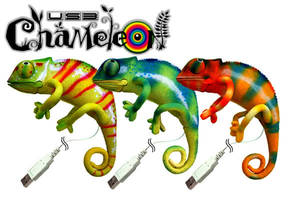The Chameleon Character of “Like”
Like is a very important word in English with a high frequency not because of its meaning (enjoy, want) alone which is central but because it is like a chameleon. It can change its colour or function depending on its usage or context. It can be a verb, a noun, a preposition, an adverb, a conjunction, and an adjective. Thus “like” can express affinity, affection or another similar concept. For example, 'I like cats'. The comparison category includes simile, as taught in English. “Like” is often used informally in AmE. Anyone who has watched American television, or who has listened to American teenagers speak, has probably heard this word repeated many times. Although the word “like” has taken on more meanings than some other words of high frequency and its usage might defy definition I will try the following:
As a verb "like" has no dynamic sense (non-progressive verb). It can only be used in the simple tenses. But like can take the infinitive or the gerund with a difference in meaning: I like to drink coffee (infinitive: choices). I like drinking coffee (gerund: enjoyment). AmE tends to use the infinitive where BE uses the gerund: I Like cycling (BE). I like to cycle /AmE). When put into negative like can be confusing:
I don’t like to go to the dentist. I don’t go
I don’t like going to the dentist. I go although I don’t like.
As a preposition Like is used for comparisons and to confer certain properties onto an object. For example, 'That painting is like this one' and 'It's just like driving'.
1. It means similar to something else: his hair is black like mine.He eats like a pig. Here like differs from as: He works like a slave.He works as a slave (he is a slave).Like Mary, I don’t smoke.
2. Things like glass (giving examples)
3. Typical: It’s just like him
As a noun:
Likes and dislikes
And the likes
Likeness: I don’t think she bear a likeness to her mother.
As a conjunction (spoken) or an adverb (spoken):
The water was like, really cold
As an 'um' or 'er' word: 'It was, like, really cool', or 'How can I forget him? I'm, like, his brother’.“ Like” expresses a thought or feeling while relating a situation to others. This is expressed in either the present or past tense: 'and I was like: "Get away from me you guys!"'. To express something which the speaker feels that the listener ought to know telepathically: 'It was, like, y'know?’
Like I said (as I said). He looked at me like I was a thief (as if).He looked like he was about to leave.
As an adjective (formal):
Be of like size (same)
Likeable (nice, personable)
Not used as an adjective but to partially confer the qualities of a, possibly strong, adjective onto the subject: “He was, like, stupid”.
She responded in like manner (attribute)
A chance to meet people of like thinking
As a suffix:
Childlike, ladylike, cotton-like
Other words and phrases:
I would like to: I would like to go (infinitive).
Feel like: I feel like drinking (drinking) coffee (gerund)
Likeable should not be confused with sympathetic
What…like: what’s your boss like?
Develop (take) a liking for (to) something: The music was too noisy for my liking.
Be like two peas in a pod (a proverb).
Other specific ways of saying like:
Love (like very much)
Adore (like and admire)
Enjoy (like doing)
Be keen on (like strongly)
Be fond of (like with emotion)
Prefer (like something/someone more than another)
Be crazy/mad about (like so much..)
Have a weakness for (particularly like)
Have a soft spot for somebody (particularly like even if he7she doesn’t deserve it)
The following words are different:
Likelihood
Likely
As demonstrated above, the usage of the word 'like' is highly confusing, and its comprehension depends largely on an understanding of context, age group and one's psychic ability. Mostly, the confusion arises from the incredibly fuzzy way in which the word is used. “Like” can go to extremes. It can be either very formal or very informal. Its informal usage especially with teenagers has come about because they are said to be afraid of expressing any thought concretely, and that adding a fuzzy word such as “like” softens this just as: “kind of”. This is considered a bad habit.



